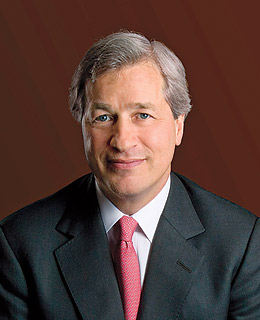
Shakespeare isn't usually associated with investment banking. But Jamie Dimon is quick to apply the Bard's insights on power and responsibility, intrigue and honor, to life on Wall Street.
He has certainly experienced as many spectacular reversals of fortune as any Shakespearean hero. Ten years ago, he was expected to be crowned head of his firm, Citigroup, as it merged with the Travelers Group. Instead he was abruptly pushed aside. But he returned in triumph when he sold Chicago's Bank One to JPMorgan Chase and quickly ascended to command of the House of Morgan himself.
In March the curtain went up on the most audacious plot twist yet. After three sleepless days of frantic negotiations involving the U.S. Treasury and the Federal Reserve Bank, JPMorgan Chase bought the reeling investment firm Bear Stearns, fending off a meltdown of the financial markets. It made Jamie, 52, a principal player in the biggest financial drama of our time. Putting the deal together was tough; making it work will be tougher still. If anyone can do it, he can.
Like Jamie, I've faced slings and arrows of outrageous Wall Street fortune; my own 15-year career at Salomon Brothers ended with a surprise boot out the door. But life has given better second and third acts to us both—in Jamie's case, a lead role in ending our winter of financial discontent.
Bloomberg is mayor of New York City and the founder of Bloomberg LP